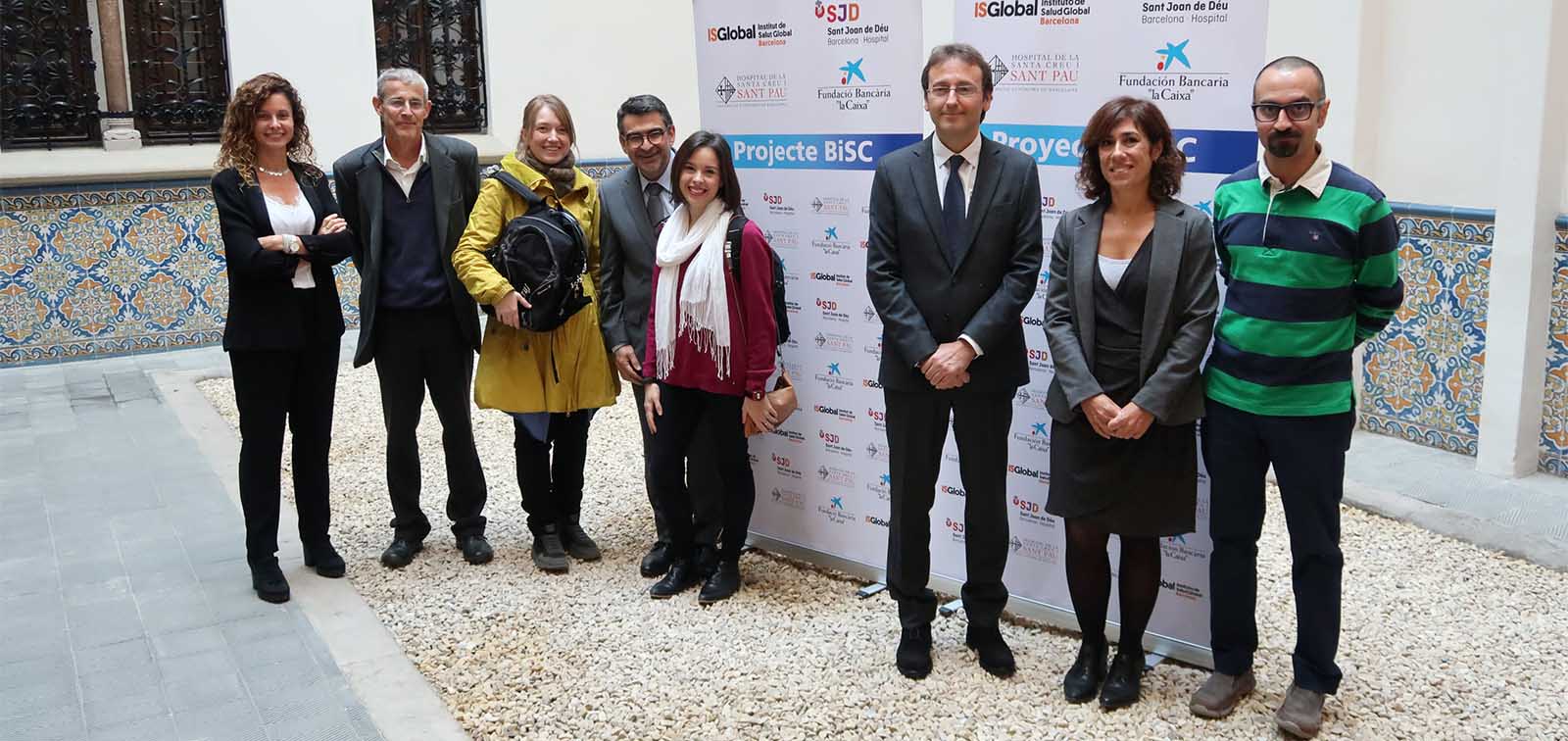1,200 Pregnant Women in Barcelona Will Participate in One of the Largest Studies on Air Pollution and Pregnancy
The BISC project will assess the role of the placenta regarding air pollutants and brain development in children, before and after birth
06.11.2018
The BiSC (Barcelona Life Study Cohort) Project, one of the largest studies to date to understand the effect of air pollution on infant health and brain development, even before birth, was presented today. The project will be implemented in Barcelona and coordinated by the Barcelona Institute for Global Health (ISGlobal), an institution supported by ”la Caixa” Foundation, in collaboration with the BCNatal center (Hospital Sant Joan de Deu, Hospital Clínic and the University of Barcelona) and the Hospital de la Santa Creu i Sant Pau.
“We hope to recruit 1,200 pregnant women to examine in detail the effect of air pollution on different child health outcomes. One of the main objectives is to assess the role of the placenta with regard to air pollutants”, explains Jordi Sunyer, project coordinator and Head of ISGlobal’s Childhood and Environment Programme.
Another novelty of the study is the assessment of each participant’s individual exposure to air pollution, both indoors and outdoors, by means of fixed and mobile measuring devices.
The project pursues lines of research opened by previous studies, such as the INMA Project and BREATHE, also coordinated by Sunyer. The main findings to date indicate that air pollution has a negative impact on the cognitive function of school children and is associated with changes in their brain function. BiSC aims to focus on the earliest phases of life to pinpoint the moment at which air pollution starts having an effect on brain development. To do so, they will examine the brain by means of imaging tests before and after birth.
“This is the first project that correlates air pollution and brain images before and after birth. In this crucial phase of life, the brain is in full development and is particularly vulnerable,” explains María Dolores Gómez Roig, Head of Obstetrics and Gynaecology at BCNatal-Hospital Sant Joan de Déu.
The study will also look at the effect on foetal and newborn growth.
A call for pregnant women
The project, which has just started, is in the process of building a cohort of pregnant women. The initial aim is to recruit 1,200 volunteers living in Barcelona and in their first trimester of pregnancy. BCNatal and the Hospital de la Santa Creu i Sant Pau will offer the possibility of participating through their obstetrics consultation service. Women interested in participating can request information through the project website www.biscproject.org.
“The recruitment phase is key to ensure the success of a project that could be highly relevant for the health of future generations. This is why we call upon the pregnant women in Barcelona to participate in the study”, says Elisa Llurba, director of the Gynaecology and Obstetrics Service at the Hospital de la Santa Creu i Sant Pau.
BiSC has a budget of 3.5 million euros and has been made possible by a European Research Council (ERC) Advanced Grant and competitive funding from the Health Effects Institute (HEI). The initial duration is of three years, although the long-term objective is to establish a birth cohort that allows following the health of the recruited mothers and newborns during their entire life.



